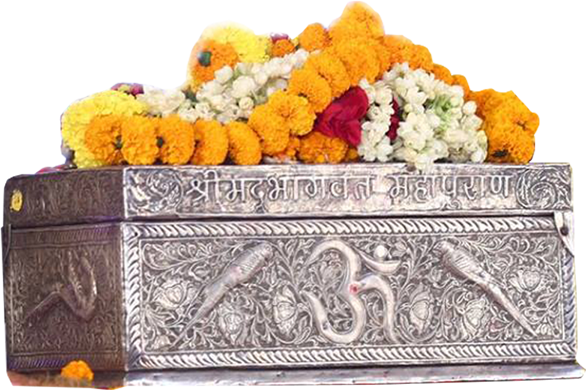
The householders, by God’s and their efforts, accumulate wealth and gain happiness. Money must be earned earnestly and with purity, strength should be there, but it must be used to protect someone. (Atharvaveda 4/14/1)
The Vedas do not prohibit earning money, but the Vedas say that one should make a lot of money, but that money should be made righteously and fairly. A person who earns in an honest way, and in righteousness, never thinks of earning money by exploiting others, taking away the rights of others, or from injustice and unfairness because of greed, is called an “ideal man.” Oh, my God! You make me walk on the right path,” the ideal man prays this from God, in order to obtain wealth.
The money earned by evil and injustice shines like fireflies for a while, but then it turns into darkness. It is the duty of the householder not to allow any kind of lack of effort to be made in one’s actions. While working as much as possible, one should be satisfied with whatever money one earns. What is earned, by not giving trouble to anyone, not bowing down in front of the wicked, and leaving the right path, is a lot. The money earned from unethical means brings one a lot of comfort initially, but at the same time it makes the family lazy, greedy, indolent and impatient. Such wealth gives one less happiness and more pain. Later, such wealth also brings bad luck and misfortune to the family. Most members of the family suffer from physical and mental decay due to their side effects and their mutual differences and dissolution.
The Scriptures urge householders to pay close attention to the sanctity of earnings. It is also necessary, along with this, to use money properly. Householders should try to arrange for the house to be properly settled and not pay much attention to luxury items other than the essential needs. In most places, this spirit of the Vedas is overlooked. Today, more families are spending on cosmetics and luxury goods. Food, lifestyle and clothing have become pretentious and meritless. Foreign food and clothing are not used in Indian culture.
In this way, an effort to maintain the purity of money can be made if a person has enough self-power. One must have the courage to show indifference to worldly temptations, and there must be similar thoughts among all family members. Children in well-to-do families should be taught sacrifice right from childhood. So that in the future, these children have the courage to face difficulties with confidence. In such families, people live in a heavenly environment of happiness and contentment, self-promotion (elevation of one’s soul, incorporation of divine qualities into one’s soul) and help to build a healthy society. Happiness and peace comes to families, where wealth is earned by good deeds.

